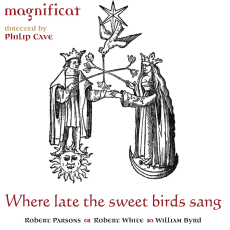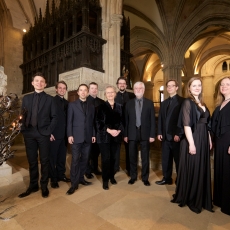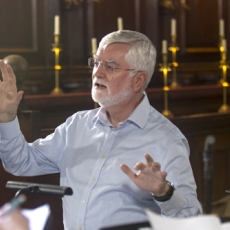Magnificat - Where Late the Sweet Birds Sang - Gramophone
An Oxford institution for over 20 years (with a personnel list that ebbs and flows with the best singers of this repertoire), Magnificat has long represented what is great about the music created there. There is such precision and care paid to the progress of the music and its phrases that you can almost see Philip Cave placing each note carefully, exactly where he want it.
That's not to say Magnificat's sounds is in any way bland in it's meticulousness - far from it. The blend and ensemble of the voices is beyond reproach, despite there being enough space between each voice part to be able to hear the polyphonic lines as living entities in their own right as well as constituent parts of a bigger harmony, and Cave is enormously skilled in bringing out tiny corners of interest without overstating them and upsetting the development of the music.
This is an undeniably scholarly disc, produced as it was by the grand dame of working choral editions of early church music, Sally Dunkley. The thesis that runs through the disc states that the early years if Elizabeth I's reign, during which all these pieces were written, were ones of exponentially rapid change in the identity of the polyphony of Latin - based texts from conservative to freely composed imitative music. With the exception of Byrd's Quomodo Cantabimus, it is a programme of frequently performed works; and although it may have been more ‘worthy' to populate such a disc with obscurer music, to match the depth of Dunkley's scholarly commitment to this music, it is nevertheless enormously gratifying to have the opportunity to listen with impunity to such nonpareils of the Tudor period sung so beautifully.


